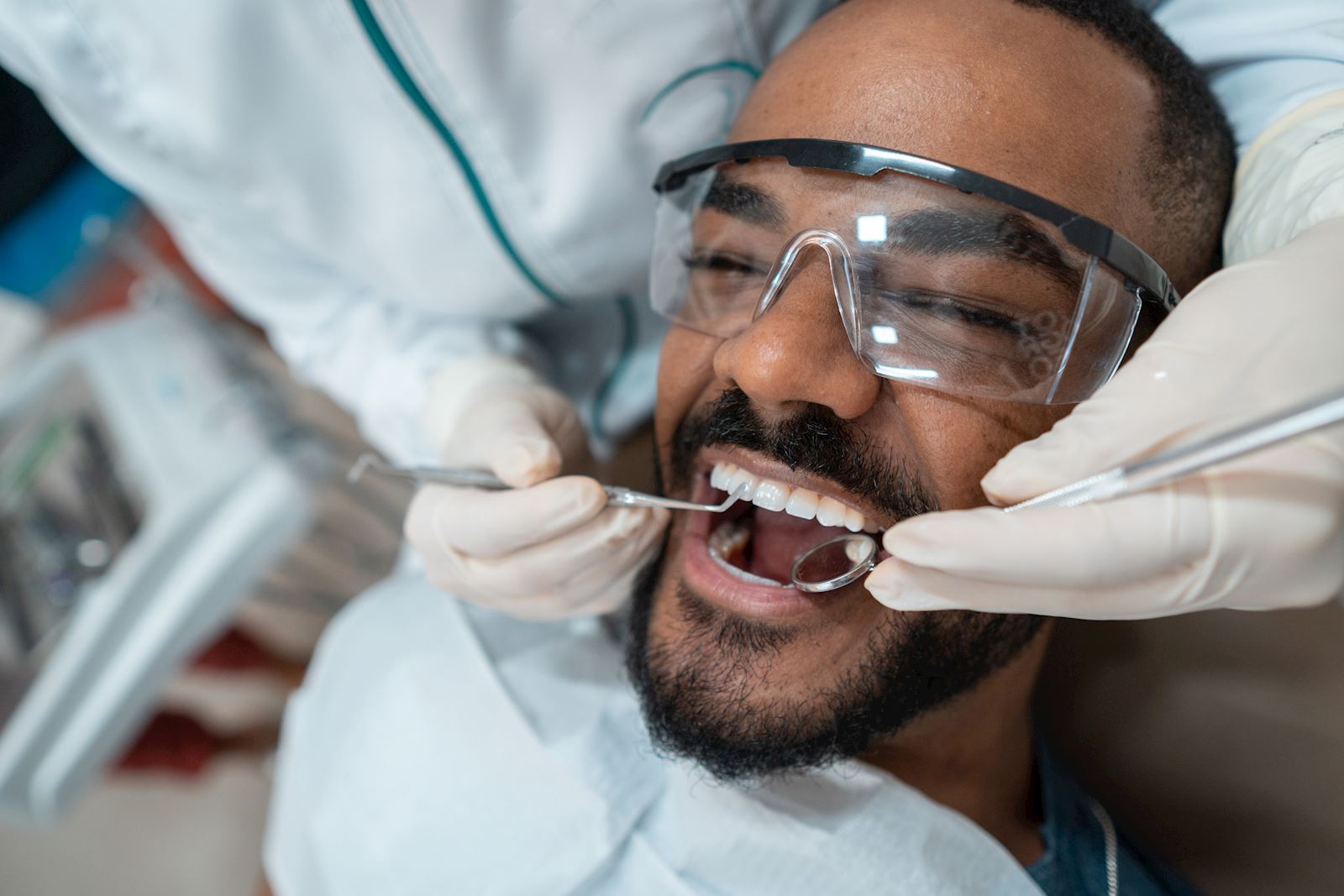What Is Tartar?
posted
by Dr. Beau Beecher, DDS on 1/24/2022
in
General

We’ve all heard of tartar and know we don’t want it on our teeth, but what exactly is it? Tartar is the result of plaque buildup, and understanding how it forms can give you a better idea on how to prevent it. Discover the basics about tartar and how it can impact the health of your teeth and gums.
What Is Tartar?
Before there’s tartar, there’s plaque. Plaque is a colorless film containing millions of bacteria. Plaque appears naturally on your teeth, sticking to the surfaces along the gumline. This generally begins to occur within four to 12 hours after brushing. If not removed regularly, plaque will work with minerals in your saliva to create crystals on your teeth, hardening into tartar.
Often yellow or brown, deposits of tartar are hard and crusty. These can affect your dental health in the form of tooth decay, cavities, and gum disease but can also develop into a cosmetic problem, frequently leading to stains and tooth discoloration.
How Does Tartar Affect Teeth and Gums?
In regard to your teeth, excessive tartar buildup can lead to cavities and tooth decay. For your gums, the bacteria in tartar irritates and damages them.
These conditions can lead to mild gum diseases such as gingivitis. Gingivitis causes irritation, swelling, and redness in your gums. It can also cause your gums to bleed when brushing or flossing them. While you can treat diseases like gingivitis with brushing, flossing, antiseptic mouthwash, and regular cleanings from your dentist, they can also progress into more serious illnesses if left untreated, such as periodontitis.
Diseases like periodontitis can cause severe damage to the gum tissue and teeth, leading to infection and tooth loss. Periodontitis is common, but largely preventable. It comes about from poor oral hygiene, and can be avoided by brushing twice a day, flossing frequently, and getting regular dental checkups.
Preventing Tartar Buildup on Teeth
To prevent the buildup of tartar, you’ll need to prevent the buildup of plaque. You can accomplish this in the following ways:
- Brush regularly. Brush and floss your teeth regularly to remove food particles and plaque. You should brush twice a day for at least two minutes. It also helps if you use an electric toothbrush, as studies have shown they remove plaque more effectively than standard toothbrushes.
- Floss daily. Flossing your teeth properly removes food particles and plaque between your teeth. This is critical to keep tartar from forming in hard-to-reach areas.
- Rinse often. Antiseptic mouthwash helps kill the bacteria that cause plaque to form.
- Use the right toothpaste. Use tartar-control toothpaste with fluoride. Fluoride can help repair enamel damage caused by plaque.
- Maintain a healthy diet. Sugary and starchy foods cause plaque to build up more quickly. This is because the bacteria in your mouth break down the foods into acids that can harm your teeth. Committing to a diet of well-balanced meals can slow or reduce plaque formation. This means a diet full of whole grains, fruits, vegetables, lean sources of protein (like fish), and fat-free dairy foods.
- Avoid tobacco. Studies show people who smoke and use other tobacco products are more likely to form tartar.
- Dental checkups. Make sure you make annual appointments with your dental professional. Brushing and flossing every day is essential, but the thorough cleanings provided by your dentist ensure those hard-to-reach areas are being taken care of as well.
Tartar Treatment From Kimball & Beecher
If you have tartar, or you’re looking to take preventive cleaning measures, get in touch with your local Kimball & Beecher office to schedule an appointment. Our experienced and caring dentists will work with you to discuss treatment options and help you establish a healthy dental routine.